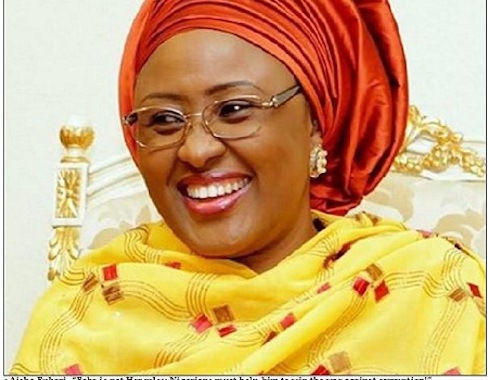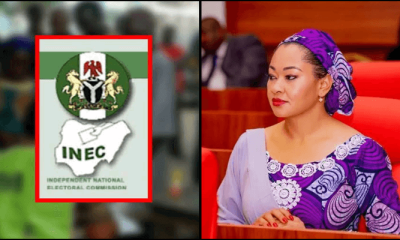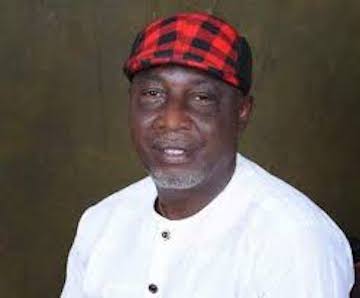NEWS
What can Nigeria Learn from China’s Electricity Revolution?

By Dakuku Peterside
The moment of revelation came unexpectedly on a high-speed train leaving Beijing, where a screen showed that 36 per cent of the train’s traction power came from wind energy. Outside, rows of wind turbines turned gracefully under the sun. For someone familiar with Nigeria’s unreliable grid — where diesel generators hum through the night and candles are often the only light—this was astonishing.
By nightfall, Shenzhen’s LED-lit skyline shone brighter than Nigeria’s entire grid on its brightest day. After ten days engaging with institutions and professionals in Singapore, Qatar, and China, I am convinced Nigeria’s energy independence is achievable. The raw materials and technology to power Nigeria exist; what is missing is an unwavering commitment to unite our resources under a common vision. If China’s electricity generation can soar from just over 1,300 TWh in 2000 to over 10,000 TWh by 2024 and if Uruguay, a small country with no fossil fuels reserves, can leap to 90 6 per cent renewable electricity in a decade, then Nigeria, blessed with abundant sunlight, deep gas reserves, and hydropower potential, can close its electricity gap in five years.Electricity is more than illumination—it is the backbone of modern life. It is the force that powers cocoa presses in Ondo, preserves fish catches for the market in the Niger Delta, drives vaccine cold-chain trucks delivering vaccines to remote clinics, fuels data centres, and charges batteries for homes in bustling cities. In Lagos, factories lose up to 40 per cent of their profits due to reliance on diesel generators during outages. In a world where the cost of backup power can turn a manufacturer from profit to loss, a reliable grid power is nothing less than an economic lifeline. The potential economic benefits of dependable electricity demand decisive action.Reliable electricity is not just about balance sheets and national budget narratives; it is about social stability and well-being. The International Energy Agency notes that each additional gigawatt of dependable power can support between 40,000 and 50,000 jobs in construction, manufacturing, and services.This potential for job creation is a beacon of hope for Nigeria’s youth, comprising approximately 70 per cent of the population. More jobs mean fewer vulnerable youths susceptible to insurgency or crime; electricity thus becomes a preventive measure for security. Its social benefits underscore its importance and the gravity of the situation, motivating us to work towards it.At the same time, scarcity also means lost opportunity. For example, Bitcoin mining consumes approximately 33 TWh annually, comparable to Denmark’s annual electricity production. Where power is cheap and abundant, tech firms thrive; where it is rationed and generator-dependent, capital and high-skilled jobs flee, along with tax revenues and tech cluster growth.Most importantly, universal electricity saves lives. Clinics with reliable refrigeration reduce maternal and infant mortality. Schools with dependable power extend learning hours and offer digital curricula to children in rural areas, providing them with access to educational resources. Streetlights deter crime and help women feel safe. Access to electricity correlates strongly with literacy, life expectancy, and income. These social benefits underscore the urgency and importance of ensuring reliable electricity for all Nigerians, emphasising the need for immediate action.China’s story demonstrates how quickly a nation can pivot when policy is clear and capital is welcome. In 2000, China’s grid produced just over 1,300 TWh, approximately one-third of the US output. By 2006, it had surpassed the US, and by 2024, it had generated over 10,000 TWh, nearly twice the US output. How? This was driven by legally binding Five-Year Plan targets for capacity, efficiency, and emissions, which provincial governments and state enterprises implemented consistently. The annual investment in generation, transmission, and distribution peaked at approximately 5 percent of GDP, significantly higher than Nigeria’s rate of under 1 per cent.China then diversified its energy mix: coal remained the backbone, but hydroelectric dams, solar farms, wind parks, and nuclear reactors grew rapidly. By 2024, non-fossil sources accounted for over 38 percent of generation. Transparent auctions and two-part tariffs – fixed network charges plus variable consumption charges -aligned incentives for consumers, utilities, and investors. Oversight by a supra-ministerial National Energy Commission, chaired by the Premier, ensured sector accountability and minimised bureaucratic conflicts. Programmes like Made in China 2025 have invested billions in solar chemistry, grid batteries, and power electronics, driving down costs and increasing capacity.China is not a perfect analogue for Nigeria, with different political and fiscal realities. However, its trajectory reveals a key truth: a country can add the equivalent of America’s entire grid in one generation when policy is clear and capital is welcome.Uruguay offers another lesson. In the early 2000s, it faced drought-prone hydropower, oil imports for thermal plants, rolling blackouts, and tariff spikes. In 2005, all political parties agreed on a 25-year energy policy ensuring bipartisanship and stability. Transparent auctions attracted global wind and solar developers. Within eight years, Uruguay installed 1.3 GW of wind capacity—the highest per capita worldwide — plus solar and biomass projects. By 2016, renewables generated over 90 per cent of electricity, tariffs had stabilised, and Uruguay exported a surplus of power to Argentina. The secret was not sheer size or resource advantage, but a credible, long-term plan backed by market discipline.It’s heartening to see the federal government take such decisive action to reshape Nigeria’s electricity landscape. The repeal of the Electric Power Sector Reform Act of 2005 and its replacement with the Electricity Act 2023 is more than a legal adjustment — it feels like the opening of a new chapter. Beyond simply rewriting the rules, we have witnessed the very architecture of our power sector undergo a transformation. By dividing the Transmission Company of Nigeria into two distinct bodies — the Transmission Service Provider, which maintains towers, lines, and substations, and the Independent System Operator, which coordinates the flow of power — there is hope. There is something fundamentally reassuring about having a dedicated steward for our physical network and a separate, impartial referee for load allocation among generators, distributors, and consumers.And yet, as promising as these reforms are, I cannot help but pause and wonder: Will structural change alone bridge the yawning gap between the electricity we have and the electricity we need? True transformation will demand more than new acronyms and fresh mandates. We will need a power regime that ignites investment, drives innovation, and sustains long-term growth — one that reaches into every corner of this country and lights up the lives of all Nigerians. In this moment of transition, I am reminded that reform is always a beginning, never an end. The Electricity Act 2023, along with the creation of ISO and TSP, marks a bold step forward. But the journey toward an abundant, reliable power — one that can fuel homes, industries, and imaginations – remains ahead of us.Mapping Nigeria onto those blueprints reveals the scale of our challenge, but also the path out. We have 13 GW of nameplate capacity but less than 5GW reliably available; combined technical and commercial losses exceed 40 per cent; a generation mix skewed to gas and hydro; fourteen primary policy documents since 2001; a single-buyer market struggling to pay gas plants; retail tariffs below cost; and almost no R&D investment for home-grown solutions. China and Uruguay faced similar gaps at the start of reform; the difference lies in governance, investment discipline, and market design.None of these gaps is immutable. Nigeria needs a five-year Power Sufficiency Roadmap, enshrined in law, to ensure stability during periods of political transition. This roadmap should be overseen by a presidential Energy Council with a real-time dashboard tracking capacity, dispatch, losses, finance, and service quality. The Transmission Company of Nigeria should be ring-fenced and spun into an independent system operator, funded by sovereign guarantees, green climate funds, and pension bonds. New generation projects should leverage Nigeria’s advantages, including utility-scale solar in the north with domestic panel assembly, run-of-river hydro in the Middle Belt, gas peaking plants in Lagos, and gas plus near-shore wind farms along the coast. Tariffs must be cost-reflective, offering a subsidised lifeline block of approximately 50 kWh per month. Digital meters and mobile money will target subsidies precisely to the poorest households.Ten per cent of the Rural Electrification Fund should seed university-industry consortia developing battery recycling, smart meter firmware, and modular inverters tailored to local conditions. Heavy-load offenders — such as illegal crypto mines and inefficient data centres — should face time-of-use penalties or bans, thereby freeing a few terawatt-hours for factories and clinics. If executed faithfully, Nigeria could achieve 20 GW of dependable capacity within five years, with unserved energy below 5 per cent, grid losses cut by two-thirds, and reliable power in every urban centre. Manufacturing output would rise, household bills would fall by up to 30 per cent, and over three million jobs would emerge in generation, contracting, assembly, and services. Clinics and schools would run uninterrupted; entrepreneurs would no longer budget for diesel; foreign direct investment would flow into tech parks and export zones.Nigeria has richer sunlight than Spain, deeper gas reserves than Norway, and hydropower potential rivalling that of Ethiopia. Our entrepreneurial spirit, mobile money networks, and growing digital workforce equip us to leapfrog legacy barriers. What remains is the decision to marshal policy, capital, and markets toward power sufficiency for all.China demonstrates that a nation can turbocharge its grid with single-minded policy, and capital feels secure. Uruguay indicates that even a small, import-dependent country can become a net power exporter within a decade. Nigeria has the resources and technology; what it lacks is coordinated conviction. Progress is a choice. If Nigeria adopts coherent policy, disciplined investment, and market incentives, five years from now, 2024 will be remembered not as a year of darkness but as the turning point toward reliable, affordable electricity for all. The switch is within reach. Let’s flip it.Dakuku Peterside, a public sector turnaround expert, public policy analyst and leadership coach, is the author of the forthcoming book, “Leading in a Storm”, a book on crisis leadership.NEWS
Ewhrudjakpo Commends CCN’s Intervention Programmes, Pledges Support
From Mike Tayese, Yenagoa
Bayelsa State government has commended the Christian Council of Nigeria (CCN) for propagating the teachings of Jesus Christ and its intervention programmes towards providing succour to people affected by natural disasters.The Deputy Governor, Sen.
Lawrence Ewhrudjakpo gave the commendation recently when the Christian Council of Nigeria, South-South zone, paid him a courtesy call in Government House, Yenagoa. He expressed delight that the CCN had offered to support the state’s development initiatives which he described as laudable and also congratulated the new South-South Zone executive members of the foremost Christian organisation in the country on their election.Ewhrudjakpo implored the current executives to make a difference by consolidating on the gains of their predecessors and demonstrate exemplary leadership, stressing that true leaders respond to the yearnings and aspirations of the people.Commenting on the interaction between the church and society, the deputy governor expressed displeasure over the church’s inability to adequately play the role of catering to the welfare of the less privileged.According to him, the churches should not place unnecessary burden on their adherents but allow them to make free will donations to support their programmes and projects.He also frowned at the practice whereby the church now placed more emphasis on materialism to the detriment of spiritual wellbeing as exemplified in the scriptures which enjoin humanity “to seek first the kingdom of God and all other things shall be added unto them.”Ewhrudjakpo further noted that one of the major concerns of the church should be about attracting people to the word of God for redemption and salvation as well as taking care of the needy.On the CCN’s request for land in Bayelsa, he expressed the government’s willingness to provide land for the purpose of establishing the National Research institute for the South-South zone.In their presentations, the National General Secretary of CCN, Rt. Rev. Evans Onyemara, and the South-South Zonal Chairman, Rev. Dr Jonathan Ihwighwu, said they were in the state to hold a zonal meeting as well as inaugurate the new executive of the CCN, South-South zone.Rt Rev Onyemara explained that aside from its evangelical mission, the CCN also provides humanitarian services and assists in developmental issues.He added that in 2022, the General Assembly of the CCN resolved that the South-South zone should establish what it called, the Institute of Church and Society and appealed to the state government to provide land for the building of a national research institute in Bayelsa for the South-South zone.The Bayelsa State Chairman of CCN, who is also the Bishop of the Northern Izon Diocese, Anglican Communion, Rt Rev. Funkuro Amgbari, that of Rivers State, Rev Dr Innocent Ordu and their Akwa Ibom, Delta, Cross River and Edo counterparts accompanied the Zonal Chairman on the visit.The Highlight of the visit was the offering of prayers for Governor Douye Diri, Senator Ewhrudjakpo and the entire government and people of Bayelsa.NEWS
Blue Economy: Bayelsa Woos Investors in Sector’s Huge Potential

From Mike Tayese, Yenagoa
Bayelsa State Government has again indicated its determination for effective collaboration with reputable individuals and firms to harness the abundant resources in the Blue Economy sector of the state.The Deputy Governor, Sen. Lawrence Ewhrudjakpo, indicated the state’s readiness at a dinner organized by the state government in honour of participants of the Senior Executive Course(SEC) 47, 2025 of the National Institute For Policy and Strategic Studies (NIPSS) in Yenagoa, at the weekend.
Ewhrudjakpo, described Bayelsa as a state richly endowed with not only oil and gas but also huge marine resources as low hanging fruits waiting for investors to pluck.To this end, he called on private and other corporate investors to look at Bayelsa for new investment opportunities in the blue economy sector, especially in the area of developing a deep sea port.He also reiterated the foresightedness of the present Bayelsa State Government in establishing a ministry of marine and blue economy, and assured prospective investors of the safety of their investments in the state.The Deputy Governor urged the participants of the Senior Executive Course 47 to act as ambassadors of Bayelsa and tell the world about the potentialities of Bayelsa in the blue economy sector.Ewhrudjakpo equally implored the team to make its report available to the state government in good time, stressing that Bayelsa was looking forward to the outcome of their study in the state believing it will help in the development of the sector.His words: “We are happy that you are happy. We are here to round off what we started some few days ago. As we all know, everything that has a beginning must have an end.”We believe that in Bayelsa we have the potential for a vibrant marine and blue economy. That is why the present administration created a separate full-fledged ministry to oversee that critical sector. We are the first state to do so in the country.”Just as oil and gas, the marine and blue economy is also very important to us. And so, we are looking forward to the outcome of your study so we can see what we can achieve with it in the area of blue economy.”We want you to be our ambassadors and tell other people that Bayelsa is investment friendly. Bayelsa is also very safe for investment.”For the participants, I believe that your coming today will add to our thinking capacity and we are open to all the critiques that will come with it.”Earlier in his opening remarks, Secretary to the State Government, Prof. Nimibofa Ayawei, lauded participants of the Senior Executive Course (SEC) 47, 2025 for their choice of Bayelsa and the discipline they all exhibited throughout the period of the study tour.Prof Ayawei, who was represented by the Permanent Secretary, SSG’s Office, Mr Felix Asingbi, expressed optimism that their visit will open up opportunities for the state to make progress in the development of its blue economy potential.Also speaking, the Leader of the NIPSS Study Team, Air Vice Marshal Mohammed Umar, commended the Bayelsa State government for what he described as exceptional hospitality accorded to members of the team.He said going round the state enabled the team to have first-hand knowledge of Bayelsa’s huge potential in the blue economy sector, and urged the government to vigorously pursue the development of the sector.NEWS
Delta Warns Contractors over Substandard Projects, Vows Sanctions for Negligence

From Francis Sadhere, Delta
The Delta State Government has issued a stern warning to contractors handling state-funded projects, emphasizing that it will not tolerate substandard work, negligence, or any form of misappropriation.Speaking on the government’s renewed commitment to infrastructure accountability, a senior official of the state’s project oversight agency stressed that effective monitoring and reporting mechanisms have been put in place to track the progress and quality of ongoing projects across the state.
He stated that the state will take decisive action against any contractor found delivering poor-quality work or engaging in sharp practices, noting that public funds must be judiciously used for the benefit of the people.”Let me make it clear: any contractor who fails to meet the standards expected of them or attempts to cut corners will face the full weight of the law. This administration is determined to deliver projects that will stand the test of time,” the official said.The agency, according to him, is actively inspecting projects to ensure they align with contractual specifications and timelines, adding that erring contractors risk sanctions ranging from blacklisting to legal action.This move comes as part of the state’s broader effort to promote transparency, accountability and value for money in all government undertakings.Residents have welcomed the warning, urging the government to match words with action and ensure no contractor goes unpunished for delivering substandard work.













